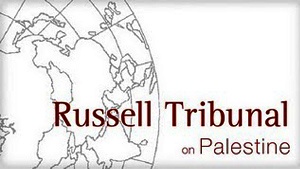Al Haq’s contribution will focus on the fragmentation of the Palestinian population brought about by Israel’s discriminatory policies and the impediments Palestinians face to their development.
Below is the abstract of Al-Haq’s written submission to the tribunal.
Legal and Administrative Measures Impacting Residency Rights and Freedom of Movement:
Fragmentation of the Palestinian Population to Prevent Their Development
The lack of territorial contiguity between the West Bank, including East Jerusalem, and the Gaza Strip, together with the building of the Annexation Wall, of Jewish-only settlements and of the segregated road system in the West Bank has physically fragmented the Occupied Palestinian Territory (OPT). The growing physical fragmentation of the OPT into enclaves is enforced through obstacles to freedom of movement implemented by Israel – such a checkpoints, roadblocks, trenches, road gates and other physical barriers-, further controlling and disrupting Palestinian movement within the West Bank.
While these physical restrictions are the visible expression of Israel's policy of control and oppression against Palestinians, the Occupying Power adopted also legislative and administrative measures, which deny the Palestinian population the right to freedom of movement and freedom of residence, isolating communities from their land, source of income, and from each other while securing the settlement enterprise and the complete segregation between the two groups.
In the West Bank, a stark example of segregation is represented by the condition of Palestinians living in the Jordan Valley, where access to land and natural resources, primarily water, is severely restricted by a draconian matrix of military and administrative measures. The economic and social development of the Palestinian communities in the Jordan Valley is inhibited, while Israeli settlments flourish and expand using Palestinian natural resources and benefitting from priviledged legal protection.
Since the 1990s, Palestinian entry to Israel, to settlement areas in the OPT, to East Jerusalem from other parts of the OPT and Palestinian movement between the West Bank and the Gaza Strip is subject to a pervasive permit system –permits virtually impossible to obtain- that severely curtails Palestinian freedom of movement and the right to choose their residency.
The population in the Gaza Strip also face severe restrictions on movement in and out of the territory. Despite the Israeli unilateral withdrawal of settlers and military permanent posts in 2005, Israel still controls the Gaza Strip’s air space, territorial sea and land borders and it has imposed a near blanket closure on the territory’s borders, preventing thousands of Palestinians from leaving the Gaza Strip, including patients with life-threatening conditions and students with scholarships to study abroad.
Palestinians' right to choose their own residency is particularly infringed upon in East Jerusalem, where Israel has introduced a strict Jerusalem residency permit regime based on the “centre of life” requirement which has resulted in the revocation of residency status of hundreds of Jerusalemites. Israel has also passed discriminatory legislation preventing Palestinians holding West Bank or Gaza IDs from living together with their Jerusalemite spouses in East Jerusalem. The Palestinians' right to choose their residence is further curtailed by the implementation of a restrictive planning and zoning regime in East Jerusalem. Israel’s systematic denial of required permits to build, repair or maintain their houses forces Palestinians to move out occupied East Jerusalem with the subsequent risk of losing their residency status.
These institutionalised discriminatory policies have resulted in the overarching fragmentation of the Palestinian population into sub-groups – West Bank, East Jerusalem and the Gaza Strip- further preventing the Palestinians from participating in the political, social, economic and cultural life of the OPT and impede their full development as a group.



 Al-Haq will be participating in the Third International Session of the Russell Tribunal on Palestine, to be held in Cape Town, South Africa from 5-7 November 2011.
Al-Haq will be participating in the Third International Session of the Russell Tribunal on Palestine, to be held in Cape Town, South Africa from 5-7 November 2011.